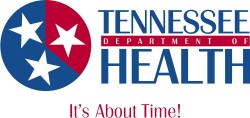 Nashville, TN – Since Thanksgiving, the Tennessee Department of Health has resumed efforts to contact patients who received tainted steroid injections, believing some were at risk for new or additional infections at or near the injection site.
Nashville, TN – Since Thanksgiving, the Tennessee Department of Health has resumed efforts to contact patients who received tainted steroid injections, believing some were at risk for new or additional infections at or near the injection site.
That has, indeed, been the case as a total of 23 people have been identified as having new, localized infections.
Altogether 107 persons in Tennessee have confirmed illnesses of some type associated with injections of contaminated methylprednisolone acetate from New England Compounding Center. No infections from other contaminated NECC products have been identified in Tennessee to date.
“We suspected, based on information from the Michigan Department of Public Health and the Centers for Disease Control and Prevention, that some people would develop new or additional infections, and that has proven true,” said TDH Commissioner John Dreyzehner, MD, MPH. “As of today, we have identified 23 persons who have developed these less serious infections at or near the site of their MPA injections. The early identification of these infections, made possible by a strong collaborative effort by clinicians, our department and the CDC, has helped several individuals get effective treatment at an earlier stage, thereby fending off a more serious illness.”Most patients identified by TDH as being at risk for the localized infections were contacted within a few days by telephone calls. Others were sent letters and, where necessary, TDH staff will make house visits in Tennessee advising patients of the need for heightened awareness of new or worsening pain at or near the site of injection, numbness in the buttocks, loss of bowel or bladder control or new or worsening headaches.
Persons who believe they may be at risk should contact the clinician who administered the steroid injection.
Tennessee Health Commissioner John Dreyzehner, MD, MPH, has provided an update on the investigation of infections associated with tainted steroid injections. His statements from today’s media briefing are included below.
Statement by Commissioner Dreyzehner December 6th, 2012:
Good morning and thank you for your continuing coverage of health problems associated with injections of contaminated methylprednisolone acetate in Tennessee and other states.
Before we discuss ongoing activities related to these fungal infections, we wish to extend our sympathies to those whose lives have been impacted by this outbreak. Although we near the three-month anniversary of when we first identified this outbreak, our concern for those affected has not diminished and we keep them in our thoughts and prayers.
We are today providing information on two subjects:
- Updated patient case numbers in Tennessee;
- Information regarding other products from New England Compounding Center.
We’ll start with the patient case numbers update.
Working with other healthcare partners, specifically the Michigan Department of Health and the CDC, we learned other states were also seeing an increase in localized infections at the original injection site. These infections include localized epidural abscess and arachnoiditis, an inflammation of part of the covering of the nerve roots which, though painful, is not life-threatening. Some patients were being identified much later than expected, suggesting that there may still be patients with treatable infections.
Consequently, we decided it would be appropriate to:
- notify at-risk patients, making them aware of the ongoing potential for a localized infection;
- tell them about the signs and symptoms they may experience with such infections; and
- suggest evaluation and assessment by their clinicians if such symptoms occur.
These contacts were made rapidly, resulting in several individuals having additional tests and learning they have localized infections. For some, this is the only infection they’ve had; for others, the localized infection was in addition to the other, more serious infection they experienced.
Moving on to our second subject, as some of you may know the CDC and FDA have identified microbial contamination in unopened vials of betamethasone, cardioplegia and triamcinolone solutions distributed by NECC.
To date, CDC has no reports of laboratory confirmed bacterial or fungal meningitis, or spinal or paraspinal infections, caused by these products. We continue to remind clinicians to report all infections potentially related to NECC products to the FDA and to TDH. The latest such reminder was sent as a Tennessee Health Alert message Monday evening of this week.
We want to commend clinicians across Tennessee who have worked cooperatively with us to remove NECC products from their inventory of usable medications, and to report possible issues affecting their patients’ health. The State Health Operations Center and our Regional Health Operations Centers have experienced superb partnerships with many clinicians across our state in reaching out to and serving those affected by this tragedy. I would also like to commend our dedicated local public health staff.


